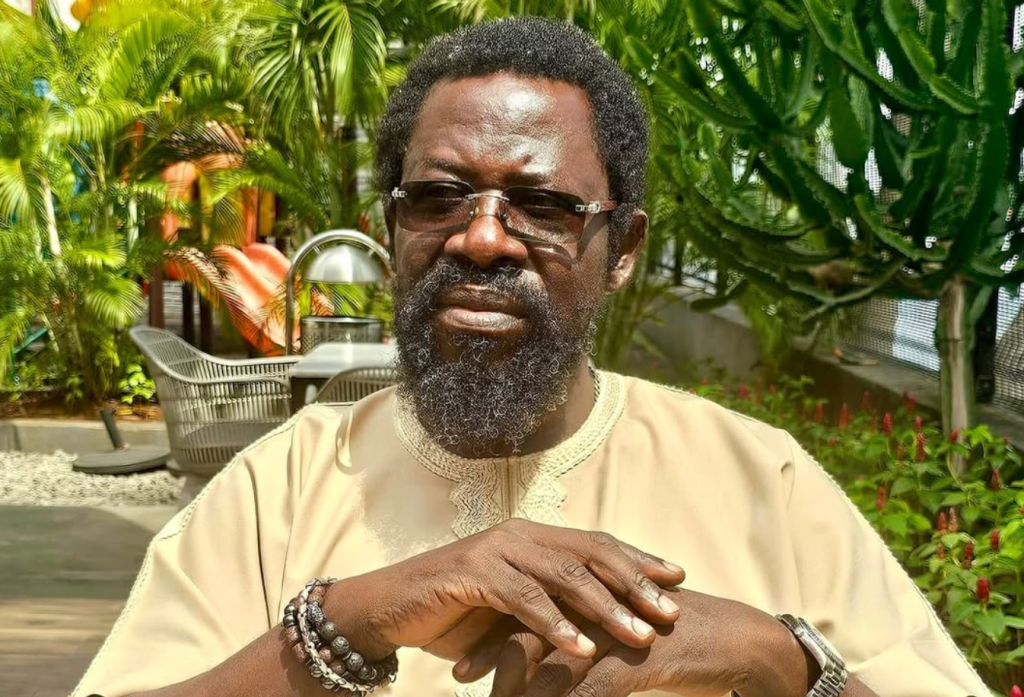Human rights attorney Dele Farotimi and Senior Advocate of Nigeria Chief Afe Babalola are engaged in a judicial struggle that has sparked a vital discussion about the rule of law and the integrity of the Nigerian legal system.
The dispute arose from Babalola’s defamation lawsuit against Farotimi, which was prompted by his claims of corruption in the Nigerian judiciary.
The case has changed from a straightforward slander lawsuit to one that raises serious concerns about Nigeria’s judicial system.
Owoseni Ajayi, the former Attorney General of Ekiti State and Lead Counsel to Afe Babalola (SAN), spoke on News Central TV’s Breakfast Central about the legality of the arrest warrant, the consequences of Nigeria’s criminal defamation laws, and the procedural issues surrounding Farotimi’s arrest.
Ajayi clarified the validity of the human rights attorney’s arrest by stating that Farotimi’s arrest was entirely procedural.
The case’s legal complexities are explained by the former Attorney General of Ekiti State, who maintains that due procedure was followed when making the arrest. However, there have been complaints about how the arrest was carried out, including claims of improper behaviour by the police during the arrest.
“Let me be very clear: this is not an exceptional situation; it is likely due to the individuals involved. Chief Afe Babalola is a national hero who has risen from obscurity to become a great man.
“Dele Forotimi has been active in human rights activism. He is already known, and therefore, because these two personalities are involved: a human rights activist, a lawyer, who is perceived to be defending the masses, who is perceived to be the young man who is oppressed by a big man, but that is not the case. This is a case of criminal defamation, which is protected by our legal system. In cases of defamation, whether through publication or libellous publication, the victim has two options: he can file a civil lawsuit to recover damages from the person who left him, or he can choose to file a criminal complaint and ask the police to question the person who libelled him.
“Since Section 53 of the Criminal Code is regarded as a criminal offence, one who has been the victim of such a publication can write to the police to have the defamatory publication investigated. The police will then invite the alleged perpetrator to appear in court.
“If the individual responded by phone, he could come to the police station to explain himself or offer an apology, but if he doesn’t answer the phone or any other way, police will try to find the source of the issue by obtaining an arrest warrant.
“A bench warrant is when you are already in court and you violate bail; you will be produced in court. A warrant of arrest is different from a bench warrant; it is to ensure that someone who has been accused of committing a crime through a petition is brought to the police station to come and explain himself. However, in this case, the warrant for Dele Farotimi’s arrest was based on the petition that Chief Afe Babalola wrote to the Ekiti State Commissioner of Police.

“Libel is an international case. It has become a worldwide case when you publish as Farotimi did in his book. It is actionable wherever that material is read. In Ekiti State, many people read this libellous publication from the book of Farotimi. Chief Babalola read it in Ekiti State, where he is stationed. “
According to Ajayi, a suspect may be taken into custody at any location and taken to the common area where he is being examined to respond to the petition.
“This implies that anyone who is thought to have committed a crime could be taken into custody anywhere. When you are arrested, it does not imply that you must be tried or looked into.”
He said that knowing full well that Farotimi is stationed in Lagos, the Ekiti State Police Command informed the Lagos Command of their intention to arrest a suspect and then travelled to Lagos to secure his arrest. To respond to the accusations made against him in that petition by Chief Afe Babalola, he was taken into custody using an arrest warrant that Ekiti State had signed.
Ajayi used the example of Nnamdi Kanu, who was detained in Kenya and taken to Nigeria to face the criminal allegations against him, to support the arrest and prosecution of Farotimi.
“Kanu is currently dealing with it, and no one is speaking out about it.”
The legal framework governing defamation and the complications of jurisdiction are also discussed, with a focus on the fact that federal laws take precedence over state laws. Additionally, the book by Farotimi, which is contentious and raises doubts about the integrity of judicial institutions, highlights the wider problem of corruption in Nigeria’s judicial system.
As the case develops, it speaks to broader social worries about the effectiveness and fairness of Nigeria’s legal system. The public can examine the nation’s governance and legal situation via the prism of the legal dispute between these two powerful individuals.
Watch more…

